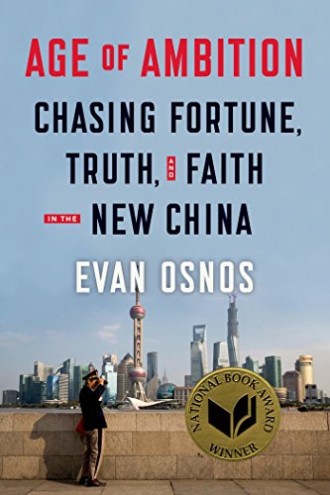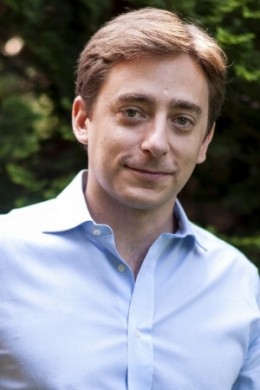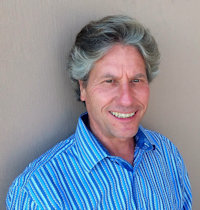Age of Ambition: Chasing Fortune, Truth, and Faith in the New China

from amazon.com
As the Beijing correspondent for The New Yorker, Evan Osnos was on the ground in China for years, witness to profound political, economic, and cultural upheaval. In Age of Ambition, he describes the greatest collision taking place in that country: the clash between the rise of the individual and the Communist Party's struggle to retain control. He asks probing questions: Why does a government with more success lifting people from poverty than any civilization in history choose to put strict restraints on freedom of expression? Why do millions of young Chinese professionals-fluent in English and devoted to Western pop culture-consider themselves "angry youth," dedicated to resisting the West's influence? How are Chinese from all strata finding meaning after two decades of the relentless pursuit of wealth?
https://www.amazon.com/Age-Ambition-Chasing-Fortune-Truth-ebook/dp/B00GET185M
Author: Evan Osnos

Evan Osnos is a staff writer at The New Yorker, covering politics and foreign affairs. From 2005 to 2013, he lived in Beijing, which is the basis for his book "Age of Ambition: Chasing Fortune, Faith and Truth in the New China." It was awarded the National Book Award in 2014. He lives in Washington, D.C.
Reviewed by: John Stokdijk

In the Epilogue of the Age of Ambition: Chasing Fortune, Truth, and Faith in the New China by Evan Osnos, he captures my impression of China.
From afar, China was often described as marching inexorably toward better days.
Before reading this book I did not know very much about China. I knew that the Cultural Revolution of the 1960s and 1970s was a great failure. I knew that the 1972 visit to China by Richard Nixon was of historic importance. I knew that in the past three decades hundreds of thousands of Chinese left poverty behind. I knew that China had a one child policy for many years. I knew that hundreds of Chinese were killed when the military acted to end the 1989 Tiananmen Square protests. I knew that the 2008 Summer Olympics opening ceremony in Beijing, which I watched on TV and greatly enjoyed, was very impressive. Age of Ambition is a very informative book and now I know more, a little more. Yet what I do not know still greatly exceeds what I know.
The structure of the book captures its three big themes. Part I is the story of China’s economic boom. Part II is about Chinese resistance to propaganda and censorship. Part III discusses the quest of the Chinese for a moral foundation for a meaningful life.
This book is an account of the collision of two forces: aspiration and authoritarianism.
I really liked the approach taken by Osnos.
This is a work of nonfiction, based on eight years of conversations. In my research, I gravitated most of all to the strivers— the men and women who were trying to elbow their way from one realm to another, not just in economic terms, but in matters of politics, ideas, and the spirit. I came to know many of them when I was writing stories...
The book is well researched and the stories are supported by detailed Notes on Sources. But the facts are used to surround a cast of fascinating characters, real people living real lives. The result, in my opinion, was a book that was enjoyable to read from start to finish.
Evan Osnos lived in China from 2005 to 2013. He was more than a reporter, he was a journalist searching for understanding far below the surface. He succeeded and the book has numerous deep insights.
The first captivating story in the book is about Captain Lin Zhengyi who in 1979 defected from Taiwan to seek a better life in mainland China. Lin Zhengyi becomes Lin Yifu who becomes an economist at the World Bank. One year younger than me, I wonder what his reflections on his life might be now.
More than thirty years after Lin had washed ashore as Captain Lin Zhengyi— the suspected spy, the man with “origins unclear”— he had dedicated himself so completely to his new hosts that nothing would steer him from his certainty.
The government was offering its people a bargain: prosperity in exchange for loyalty. Chairman Mao had railed against bourgeois indulgences, but now Chinese leaders were actively promoting the pursuit of the good life.
Another intriguing story is that of Gong Hainan, who was born in a remote village, and became Gong Haiyan, a successful and wealthy dating entrepreneur.
Internet dating, which hardly existed in China when Gong began, had become an industry worth more than a billion yuan...
Part I of the Age of Ambition reminds me of my own story. After high school I left Nova Scotia, which seemed to have limited opportunities, and moved to Alberta seeking a better life. I was an ambitious young man with big dreams of success as an entrepreneur. I was motivated by a belief in progress, getting ahead, moving up.
We get a lot of insight into the tension between the government and the media from the life of Hu Shuli.
In her mid-fifties, Hu Shuli was five feet two and slim, with a pixie haircut and a wardrobe of color-coordinated outfits. She was so voluble and pugnacious that she seemed like “a female Godfather,” one of her reporters thought upon their first meeting. Another of her colleagues compared the experience of chatting with her to being on the receiving end of machine-gun fire.
The young graduate student Tang Jie gives us one of the book’s greatest bits of wisdom.
Tang was baffled that foreigners might imagine that people of his generation were somehow unwise to the distortions of censorship. “Because we are in such a system, we are always asking ourselves whether we are brainwashed,” he said. “We are always eager to get other information from different channels.” Then he added, “But when you are in a so-called free system you never think about whether you are brainwashed.”
He believed his generation had learned something vital... “Now they know: I must use my own brain.”
Age of Ambition was published in 2014 and this date is significant. In light of the rise of Donald Trump to the Presidency of the United States of America, many people are thinking about truth in a free system. Fake news and post-truth are now discussed daily in free societies. What would Tang Jie think about all of this?
Although I was quite aware that China is not a free society, I was still somewhat surprised by the enormous effort by the government to control information.
By the time I settled in China, the Department, and its offices across the country, had control over two thousand newspapers and eight thousand magazines; every film and television program, every textbook, amusement park, video game, bowling club, and beauty pageant was subject to its scrutiny…Instead of withering away, the world of Thought Work grew in scale and sophistication, until it encompassed, by one estimate, a propaganda officer for every one hundred Chinese citizens.
Yet I find it easy to understand why the economist Lin Yifu favors the Chinese system of government over the American system and he gives us another bit of wisdom.
He quoted Deng Xiaoping, who once said, “The United States brags about its political system, but the president says one thing during the election, something else when he takes office, something else at midterm, and something else when he leaves.”
His friend “...thought that if China wants to be successful, China needs to adopt the British- or U.S.-style constitution first,” he said. “I take a different view: I think that we do not know what kind of governance structure is the best in the world.”
Almost from its start, I have loved the Web but it has not lived up to its early promises, not in China and not anywhere. This story is told through the life of Han Han.
Around the world, critics of “cyber-utopianism” argued that the Web provided only an illusion of openness, and a weak sense of community; that it strengthened authoritarian governments by creating a safety valve and defusing the pressure for deeper change.
The Web had altered the course of Han Han’s life… In 2006, Han Han started blogging, and his focus took an unmistakable turn toward some of China’s most sensitive matters: party corruption, censorship, the exploitation of young workers, pollution, the gap between the rich and the poor… Among intellectuals, Han Han was a polarizing figure.
Another interesting character in the book is the artist Ai Weiwei. Personally, I am not an artist and I do not have the soul of an artist. But over the years I have slowly learned that artists often have deep insights earlier than average and ordinary people like myself. We can learn much from artists.
As his criticism grew, Ai Weiwei became China’s most determined innovator of provocation… As years went by, Ai Weiwei spent more and more of his time on the intersection of politics, free expression, and technology...He became engrossed in one sensitive issue after another… Ai Weiwei’s arrest attracted a level of international notoriety that his art never had. Overnight he became one of the world’s most famous dissidents.
As a Canadian living in Mexico, I have been learning about corruption but the Age of Ambition gave me another surprise. This aspect of China is also told through the lives of several interesting characters. The intersection of propaganda and censorship and corruption in China is literally very foreign to me.
For outsiders, the scale of political corruption in China was often difficult to comprehend… Every country has corruption, but China’s was approaching a level of its own… There were two basic views of how corruption could affect China’s future. The optimistic scenario was that it was part of the transition from socialism to the free market, and it nevertheless produced highways and trains that inspired envy even in the developed world… The darker scenario held that the threat posed by Chinese corruption was not economic; it was political.
In my opinion Part III of the Age of Ambition is the most important. It seems to me that much of the world, not just China, is having a crisis of meaning. But here in Mexico where I live, many people seem to be chasing materialistic progress but a meaning crisis is not yet apparent.
The relentless pursuit of fortune had relieved the deprivation in China’s past, but it had failed to define the ultimate purpose of the nation and the individual… China was pursuing material satisfaction, and people found that it could satisfy only some of their yearnings; on the existential questions— meaning, self-cultivation, life itself— it was a dead end... The “spiritual void” was now being filled, as one study put it, by a “religious universe, exploding centrifugally in all directions.”
At this point, the Age of Ambition delivered yet another big surprise.
There were now sixty to eighty million Christians, a community as large as the Communist Party… Li Fan, a secular liberal writer, told me, “Christianity has probably become China’s largest nongovernmental organization.” ...As I traveled around China, I stopped being surprised by my encounters with Christians.
Just as America’s conservative movement in the 1960s had capitalized on the yearning for a postliberal retreat to morality and nobility, China’s classical revival drew on a nostalgic image of what it meant to be Chinese.
The story of Little Yueyue, which means “Little Joy,” was heartbreaking and insightful.
The lesson never changed: what little you have assembled in life can be gone in an instant.
The Party had rested its legitimacy on prosperity, stability, and a pantheon of hollow heroes. In doing so, it had disarmed itself in the battle for the soul, and it sent Chinese individuals out to wander the market of ideas in search of icons of their own.
The search for meaning and the battle for the soul is something I think about often in my retirement. It is not only in China that stability is fragile. Belief in the role of free markets is now being questioned in the USA, particularly amongst the young, and rightly so.
To live in China in the early years of the twenty-first century was to witness a spiritual revival that could be compared to America’s Great Awakening in the nineteenth century… The search for answers awakened and galvanized people in a way that the pursuit of fortune once had… “The question of markets,” he said, “is really a question about how we want to live together. Do we want a society where everything is up for sale?” ...After thirty years of marching toward a future in which everything was for sale, many people in China were reconsidering.
Let’s go back to the artist Ai Weiwei. Like him, I am losing my optimism. I am concerned not only with China but with all of civilization itself.
I had never heard him so pessimistic… “I think almost every level of the society today realizes China is facing a great crisis in terms of trust, ideology, moral standards, and many, many other ways … It’s not going to last.
My review cannot do this book justice but I must bring it to a conclusion. I will do so by thanking Evan Osnos for spending time in China and for writing this book. I have learned much but I remain mindful of how little I know about China and how little all of us can know about its future.
This book is the result of eight years of reporting and living in China. I moved to Beijing in June 2005 and stayed until July 2013, when my wife, Sarabeth Berman, and I moved to Washington, D.C.
